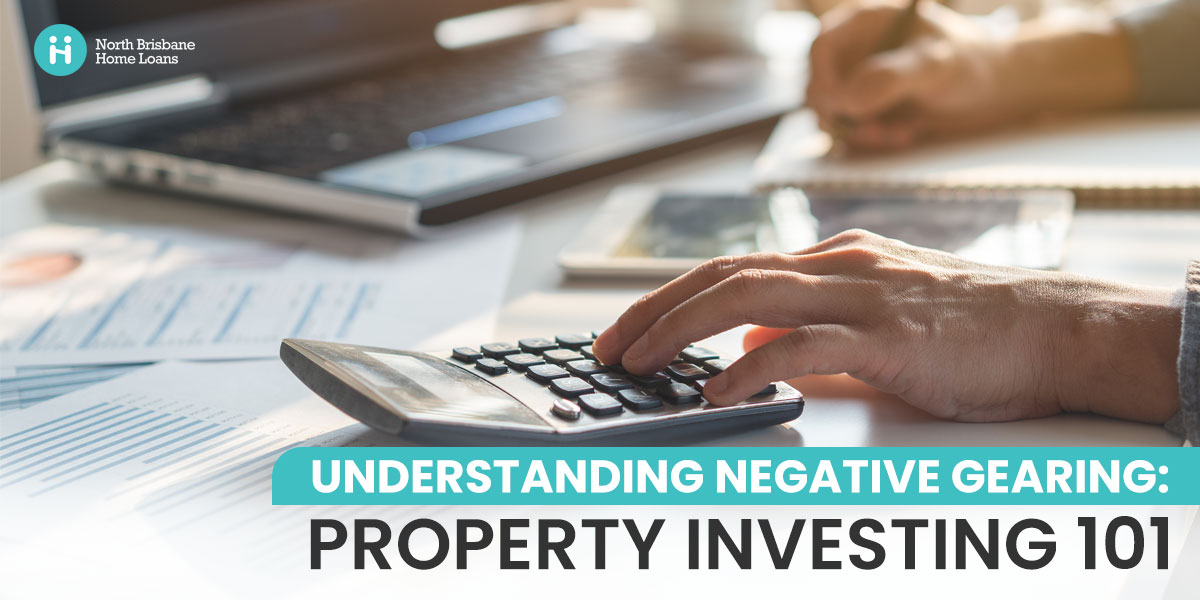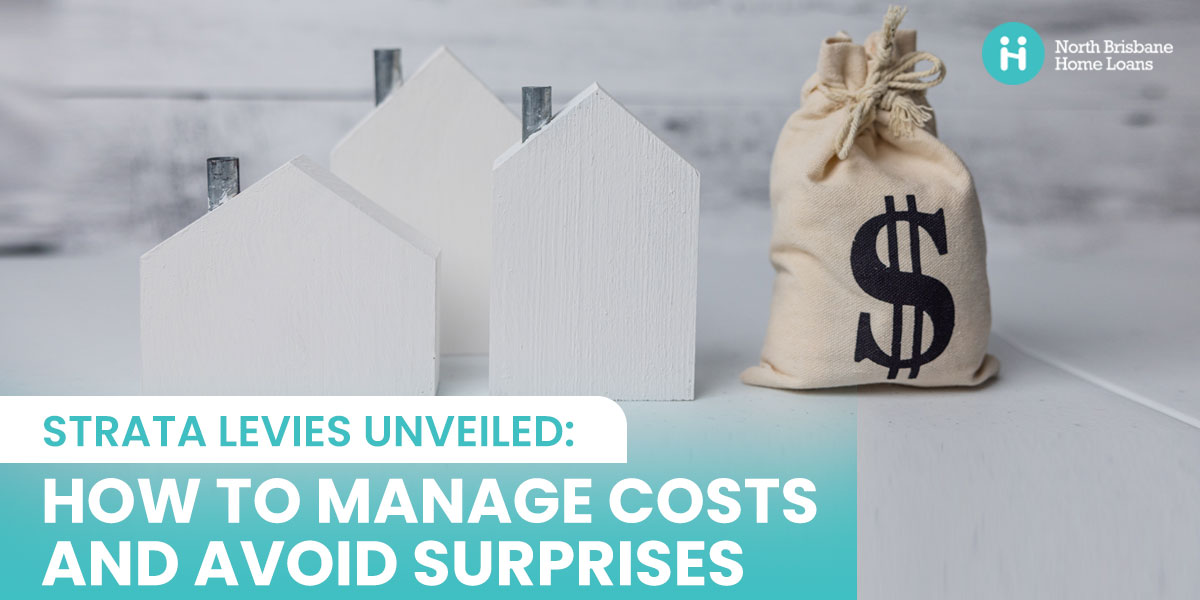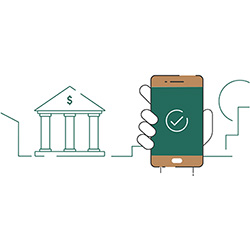
Are you a self-employed individual in Brisbane seeking a home loan? If you are, then this guide to self employed home loans in Brisbane should be helpful. Navigating the property market and securing a mortgage can be a unique challenge when you’re managing your own business. This journey, while exciting, often requires a different approach due to the distinct financial profiles of self-employed individuals.
Our team of expert mortgage brokers specialises in understanding and catering to these unique needs. We’re here to provide personalised advice and solutions, ensuring you find a home loan that fits your self-employed status. Let us help you make your property owning dreams a reality with confidence and ease!
Self Employed Home Loans – How To Get A Mortgage
10 Reasons Why You Should Work With A Mortgage Broker For Self-Employed Home Loans
Securing a home loan can be a complex process, especially for self-employed individuals with unique financial situations. This is where the role of a mortgage broker becomes crucial.
Opting for a mortgage broker who is experienced in handling self employed home loans offers significant benefits. They provide professional guidance and customised solutions, ensuring that the specific requirements of self-employed borrowers are efficiently addressed.
Below are 10 key reasons why choosing a mortgage broker for your self employed home loan is a wise and beneficial decision.

- Expertise in Self-Employed Loans
- Time-Saving
- Access to a Wider Range of Lenders
- Professional Advocacy
- Customised Loan Solutions
- Guidance on Financial Documentation
- Simplified Application Process
- Ongoing Support
- Better Rates and Terms
- No Cost to the Borrower
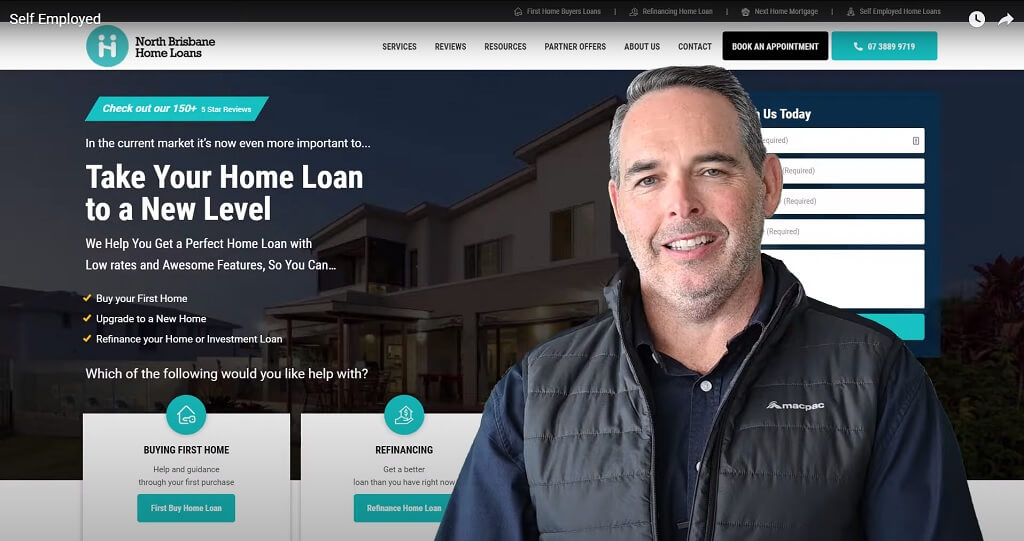
7 Tips for Self Employed Home Buyers in Brisbane
Navigating the home loan process as a self-employed individual in Brisbane, Australia, requires careful planning and strategic thinking. To enhance your chances of securing the best possible home loan, consider these seven essential tips tailored for applicants of self employed home loans.
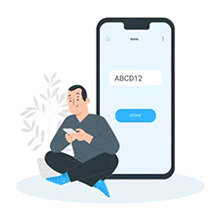
Prioritise Timely Bill Payments
Consistently paying your bills on time is crucial. Late payments on bills, credit cards, or loans can significantly impact your home loan eligibility. Conversely, a track record of punctual payments demonstrates to lenders your reliability and commitment to financial responsibilities.

Organise Your Financial Documentation
A common hurdle in the home loan application process is disorganised or incomplete financial records. Ensure your tax returns for the past two years are complete (including both business and personal) and organise your financial documents for easy access and clarity.

Simplify Your Financial Affairs
Lenders generally favour straightforward financial situations. Complex tax strategies or intricate lease arrangements might complicate your home loan application. Aim to simplify these aspects as much as possible for easier understanding by brokers and lenders.

Conduct a Thorough Credit Check
A credit check is a vital step in the mortgage application process. Obtain a recent credit report (you’re entitled to one free report every 12 months) and review it meticulously with your mortgage broker to identify any issues or inaccuracies.

Consult an Experienced Mortgage Broker
Engaging with a mortgage broker experienced in self-employed loans can significantly ease the application process. They offer tailored advice and practical suggestions, improving your chances of securing a suitable home loan. The earlier you consult a broker, the smoother the process will be.

Be Receptive to Your Broker’s Advice
Your mortgage broker’s recommendations, based on a thorough review of your finances, are invaluable. Be open to their suggestions, even if they differ from your initial thoughts. Their experience in securing favourable outcomes is a vital asset in your home loan journey.

Assess the Timing of Your Application
Discussing your situation with a self-employed mortgage broker might reveal that delaying your application could be advantageous. If your business is new or cash flow is tight, waiting a few months could lead to better loan terms, such as lower interest rates or a more suitable mortgage product.
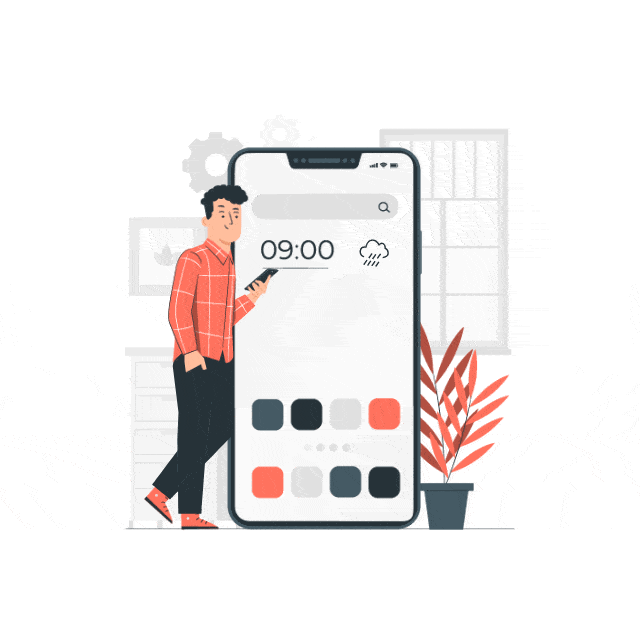
Maintain a Healthy Debt-to-Income Ratio
For self-employed individuals, maintaining a balanced debt-to-income ratio is key. This ratio is a critical factor lenders consider when assessing loan applications. Keeping your debts low relative to your income demonstrates financial stability and increases your attractiveness as a borrower.
NBHL: Best mortgage brokers for first time buyers
Home loans lenders often require additional paperwork if you’re self-employed, and you may need a larger deposit to secure finance. Let the professional mortgage brokers at North Brisbane Home Loans help you find a self employed home loan to suit your needs.
Why Choose North Brisbane Home Loans?

5 Star Customer Rating
We put you first and genuinely want to help you achieve your property ownership dreams.
Being a top rated first home buyers mortgage broker in Brisbane we delivered the best home loan for first home buyers. We have hundreds of happy customers, find out what they’ve said about working with North Brisbane Home Loans here.

Experienced Mortgage Brokers
With more than 90 years’ combined experience in the industry, our first home buyer mortgage broker can confidently offer you the best advice when it comes to finding the best value loan for you.
We are a team of experienced mortgage brokers in Brisbane that helps to get the best home loan for first home buyers.

We Work For You – Not The Banks
We don’t charge any fees for our first home owner loan services, our commission comes from the lender.
As a personal first home buyers mortgage broker in Brisbane, we’re by your side every step of the way to ensure you select the best first time home buyer loan product for your individual circumstances.

Exclusive Partner Network
Not only do we provide you with the best advice on first home owners loan needs, but we also introduce clients to our network of trusted partners offering discounted rates.
Save time and money searching for reliable building and pest, real estate agents, solicitors and more.
5.0 STAR REVIEWS
Reviews from First Home Buyers Brisbane, QLD

Frequently Asked Questions About Self Employed Home Loans
Will I have more trouble getting a home loan if I’m self employed?
It certainly used to be more difficult for a self employed person to get a home loan, but thankfully, this no longer has to be the case. Being self employed has become increasingly common in Australia, with 2.1 million registered business owners and 1.2 million sole traders. As a result, more lenders are coming to appreciate the unique situation that self employed borrowers find themselves in. The key difference in applying for a self employed home loan these days is that you’ll be asked to present your tax returns as proof of income, rather than paperwork from an employer. To give yourself the greatest chance of success it’s a good idea to team up with a broker who has experience in submitting self employed mortgage applications.
Is there a minimum amount of time I need to have been self employed before I can apply for a mortgage?
Most lenders prefer for a self employed borrower to have been in the same situation for at least two years (as this means they can provide two full years’ worth of tax returns). However, some lenders will consider applications from individuals who have been self employed for less than two years. These lenders specialise in helping shorter term self employed clients, however the deposit amount required is normally higher as is the interest rate.
I’ve only been self employed for one year – is it worth applying for a home loan?
If you’ve been self employed for less than two years then contact one of our brokers to find out what options could be available to you. Some lenders may assess your eligibility based on how long you’ve been working in a particular industry as opposed to solely how long you’ve been self employed. For example, if you worked as a mechanic for six years as an employee and you’ve now been working as a self employed mechanic for over a year, that may increase your eligibility in the eyes of some lenders. Other lenders may consider applications that come with a deposit of at least 20% of the property price. But individual circumstances will vary and the best course of action is to speak directly with a mortgage broker.
How will my income be assessed for a self employed home loan?
Most lenders will want to see your tax returns for the past few years, rather than proof of a weekly or monthly income. This is good news for self employed borrowers who may experience a more erratic income schedule. In some situations, a lender may also ask for BAS statements or bank statements.
What is a Low Doc loan?
Low Doc loans are a specific type of mortgage product designed for borrowers who don’t have a lot of the traditional supporting documentation typically requested by lenders. They first appeared on the mortgage market in the late 1990s and were offered by non-bank lenders to people who would struggle to qualify for a home loan based on the standard lending criteria. Low Doc loans gradually became more of a mainstream product, and today they are available from most of the big lenders, including the major banks. Low Doc loans can be a great solution for self employed borrowers, but they may also come with higher interest rates or require a larger deposit.
What are the most common application issues with self employed home loans?
Self employed home loan applications can encounter a range of issues, but the most commonly encountered ones include:
1. A successful business with a clever accountant (where your business is performing better than it appears on paper).
2. Applicants who have been self employed for less than two years continuously.
3. Rapid expansion of the business (resulting in raised eyebrows and a lot of questions from the bank).
4. Banks basing their assessment off the lowest figure shown in your tax returns, not the most recent.
If any of these situations apply to your business then don’t give up hope – many of these issues may be overcome by working with an experienced broker.
What should I know about add-backs?
As part of the overall assessment of your self employed mortgage application, a lender will take into consideration any unusual expenditures that don’t make up a regular part of your business expenses. This could include the interest you’ve paid on a business loan, depreciation on assets, company vehicle expenses or even additional contributions you’ve made towards your superannuation. Why are add-backs important? Because some lenders will ‘add-back’ the sum of these expenses to get a more accurate idea of your income – but others won’t. Correctly identifying and presenting add-backs can play an important role in determining whether or not a self employed mortgage application is approved.
My cash flow is a bit irregular – will this be an issue?
Don’t worry too much about irregular cash flow. Most lenders now appreciate the fact that when you’re self employed you’ll typically go through a cash flow cycle of feast and famine. This is why it’s important to have your tax returns in order – so that lenders can assess your annual income rather than a weekly or monthly income. But if you have experienced any major fluctuations in income then it helps if you have a reasonable explanation of why.
What else should I know about applying for a self employed home loan?
Applying for a self employed home loan doesn’t have to be stressful. It doesn’t have to be complicated. And it doesn’t mean you have to settle for higher fees and less competitive rates. Start by talking to a mortgage broker who has plenty of experience in working with people who are self employed. They can work with you throughout the entire process to ensure that you achieve the best possible result for your particular circumstances.
Book A Free Self Employed Home Loan Consultation
To book a free Self Employed Loan consultation, or for expert mortgage broker advice to help you buy your first home, contact the team at North Brisbane Home Loans.
New Updates
Latest Posts

